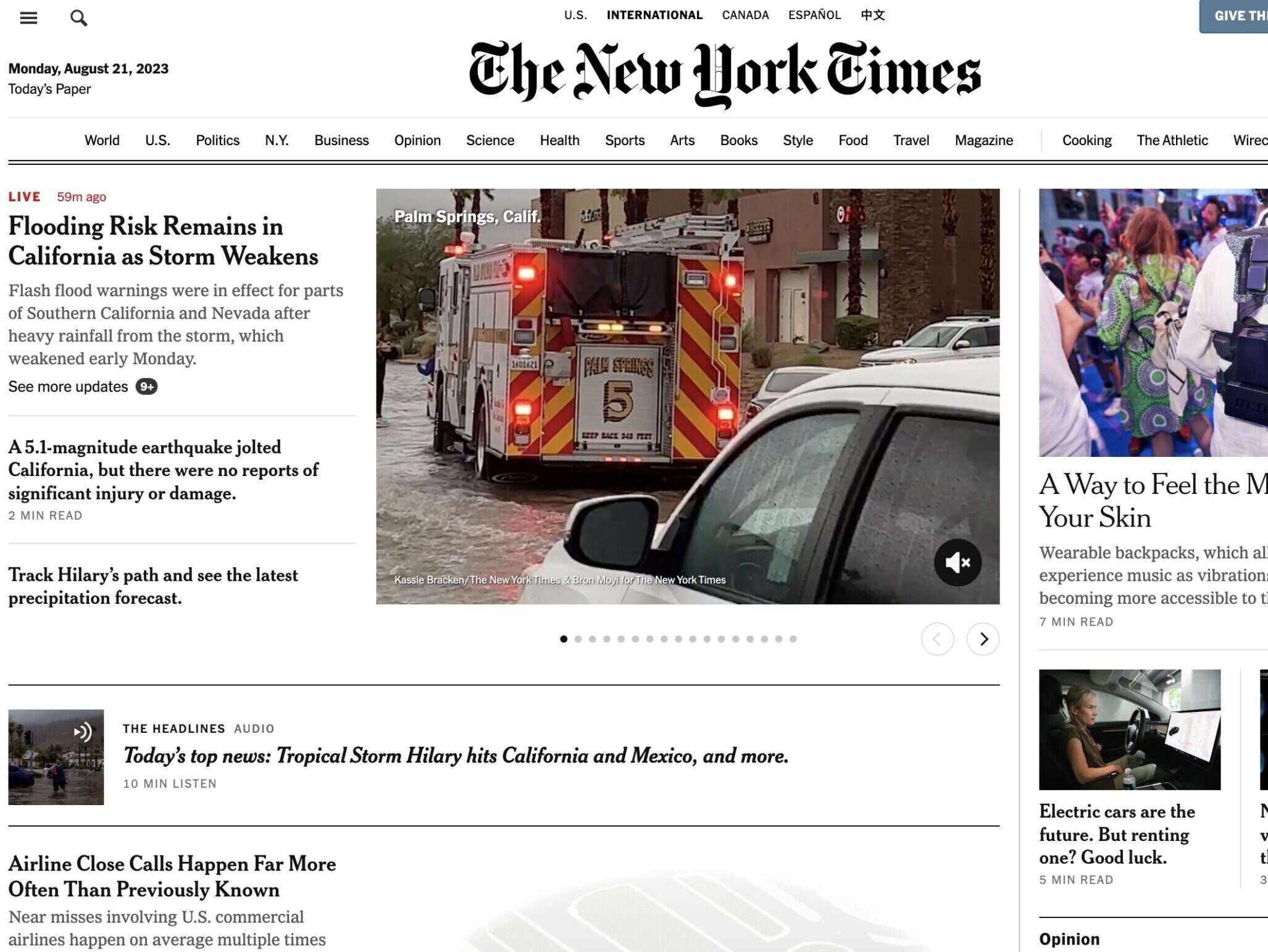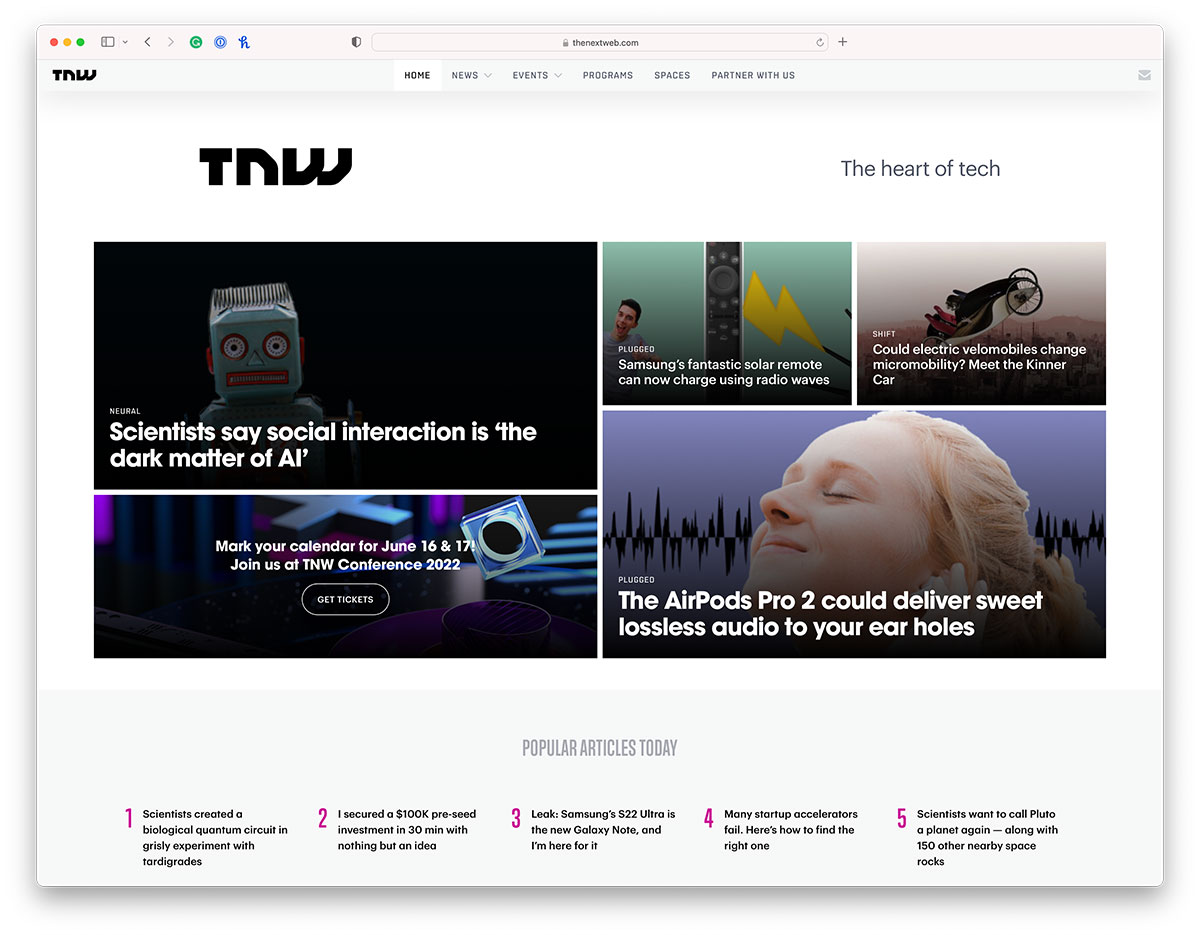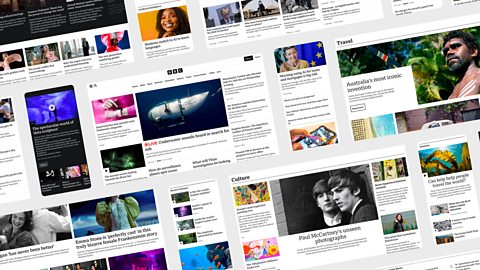Fascination About News Websites
Fascination About News Websites
Blog Article
Some Known Details About News Websites
Table of ContentsNews Websites - TruthsUnknown Facts About News WebsitesThe Basic Principles Of News Websites News Websites for BeginnersA Biased View of News Websites
It was down in the UK and Brazil but up some various other nations, such as Greece, Bulgaria, and Poland (News Websites). This year, for the first time, we asked about the various manner ins which people stay clear of the news and discovered that around half of avoiders (53%) were trying to do so in a broad-brush or routine way as an example, by shutting off the radio when the news came on, or by scrolling past the news in social mediae.g. scrolling previous information, transforming networks when information comes on. of avoiders check sources much less frequently. e.g. limitation to specific times of day, transforming off alerts, etc. of avoiders avoid some subjects. e.g. subjects that lower mood or boost anxiousness. You claimed that you attempt to actively prevent news.

I'm probably picking to find out more light-hearted tales than I used to at the minute. M, 51, UK Switching my back on information is the only way I feel I can cope often. I need to consciously make the initiative to avert for the benefit of my own psychological health.
Not known Details About News Websites
Discerning avoidance of Ukraine information was highest in a lot of the countries closest to the conflict, reinforcing findings from our additional survey in 2014, not long after the battle had actually started. Our information might not suggest an absence of passion in Ukraine from close-by nations however instead a wish to take care of time or secure psychological health and wellness from the extremely actual horrors of battle.
Comparing Finland with a politically polarised nation such as the United States (see next graph) that is much less affected by the war, we discover a very different pattern of topic avoidance. In the United States, we find that customers are more probable to prevent topics such as national politics and social justice, where debates over problems such as gender, sexuality, and race have actually come to be highly politicised.
American national politics are quite harmful these days. I discover occasionally that I have to disconnect from stories that just make me angry. F, 61, United States For some people, bitter and disruptive political debates are a factor to transform off news completely, but for some political upholders, evasion is usually about obstructing out perspectives you do not wish to listen to.

Our News Websites Ideas
Some are aiming to make news extra available for hard-to-reach teams, widening the news schedule, appointing more motivating or positive news, or welcoming useful or services journalism that give people a sense of hope or individual firm. In our study this year, we asked participants about their passion in these various approaches.
This explains why tales like Ukraine or nationwide politics carry out well with news regulars however can at the same time turn much less interested individuals away (News Websites). Discerning avoiders are much less curious about all types of information than non-avoiders yet in relative terms they do seem to be a lot more interested in favorable or solutions-based information

What Does News Websites Mean?
2023). This might hold true in the minute, but with time it seems to be leaving many individuals vacant and much less completely satisfied, which might be weakening our connection with and rely on the news. Across markets, total rely on information (40%) and count on in the resources people utilize themselves (46%) are down by a better 2 percentage points this year.
Without a doubt, through the rear-view mirror, the COVID-19 trust bump is clearly noticeable in the following graph, though the instructions of traveling after that has been mixed. In many cases you could try these out (e.g. Finland), the count on increase has been maintained, while in others the upturn see here looks more like a spot in a story of ongoing long-term decline.
A few of the highest possible reported levels of media objection are found in countries with highest degree of distrust, such as Greece, the Philippines, the USA, France, and the UK. The most affordable degrees of media objection are often in those with greater degrees of count on, such as Finland, Norway, Denmark, and Japan.
See This Report on News Websites
This year we asked respondents regarding their preferences for text, sound and video clip when taking in information online. Generally, we find that the majority still like to check out the news (57%), as opposed to watch (30%) or listen to it (13%), yet younger individuals (under-35s) are more probable to my explanation pay attention (17%) than older teams.
Behind the standards we discover significant and unexpected nation distinctions. In markets with a solid analysis tradition, such as Finland and the United Kingdom, around 8 in 10 still choose to check out on the internet news, yet in India and Thailand, around 4 in ten (40%) say they prefer to enjoy news online, and in the Philippines that proportion mores than fifty percent (52%).
Report this page